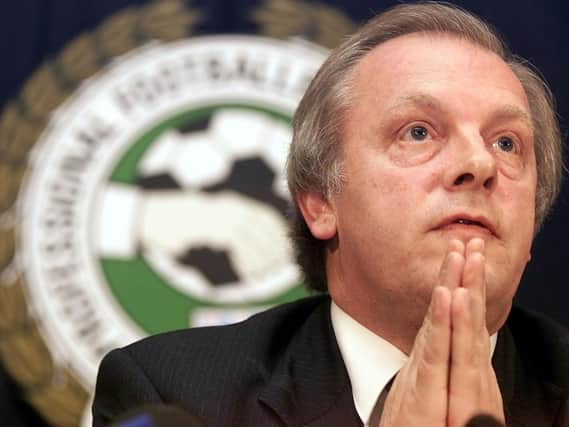David Preece: There were two sides of the PFA coin but it has the scope to do better


I did answer it once, though - forcing myself to act like nothing was wrong as I spoke to a former team-mate who had rang the week before about the possibility of a job out in the Middle East. The job was no longer there.
I ended the call, took off the mask I had put on that allowed me to speak, and put my head back down on the pillow.
Advertisement
Hide AdAdvertisement
Hide AdThis is what the end of a career feels like. When it came there was no fanfare, no curtain call, no lap of honour.
Not for me. Just an emptiness and I didn’t know what to do.
Eventually, I did the only thing I could think of. I rang the PFA. I hadn’t used their services a great deal throughout my career, partly because I played half of my career outside of England.
And partly because I thought they were there for those who needed them more than I did, and up to that point I hadn’t been in dire need.
It should be said that whenever I had contact with them, they were very helpful. I had studied for my Level 3 coaching licence with them and if it wasn’t for me enrolling in their Professional Sports Writing and Broadcasting degree at Staffs Uni, you might be reading someone else’s words right now (so you could blame them for that).
Advertisement
Hide AdAdvertisement
Hide AdSo I made the call. I was hesitant though. Four years earlier I’d sat down with clinical psychologist Dr Claire Bullen-Foster, wife of my team-mate at Barnsley Stephen Foster.
She had an idea about putting a team together who would not only help players in crisis with their mental health issues but also visit each club to promote and educate on the matter with the aim of heading off any problems before they became one.
The end game was having someone in place at every club to help players deal with the pressures of life in football and out of it, whether that comes at 18 or 36 years old.
As she put it, the problem was that you had to ask for help instead of it being there already. If you have a torn cruciate, a physio can treat the problem but not fix it - and that’s what was happening at the PFA.
Advertisement
Hide AdAdvertisement
Hide AdWhat was in place at the time was mostly treating addictions but we thought there was so much that could be done to deal with mental health issues in the game - and perhaps if mental issues were dealt with earlier, it could get to the root problems that lead to addictions.
One of the courses provided at the time was some kind of equine therapy, which involved caring for horses as part of your treatment; wholly inadequate and more evidence was needed.
Sadly, as much as Claire fought, there was little response from the PFA. Here was a professional in the field who was inside football and recognised the need for action to help players stay sane in a business that can be anything but, yet didn’t get the courtesy of a meeting to expand on the plans she had laid down in black and white.
So, I had my reservations about calling but I had nowhere else to turn. I needed to talk to someone who didn’t know me but would help me deal with what I was going through.
Advertisement
Hide AdAdvertisement
Hide AdWhen I did call, I was given the number of a woman called Shelley at the Sporting Chance clinic who was very matter of fact about my situation but told me to wait by the phone and someone would call me.
They did. It was a man called Mike, a therapist who lived just outside Grantham and we arranged for me to visit him at his home for a chat.
In the four years since Claire had approached the PFA, they seemed to have at least put something in place.
To cut a long story short, every Friday for the next 18 weeks I’d visit Mike, a retired miner who had found his calling in helping people deal with the problems life had place in front of them. And to Mike personally, I owe a great debt for helping put the building blocks of my life back in order.
Advertisement
Hide AdAdvertisement
Hide AdNow this might sound like a defence of the PFA at a time when the leadership of Gordon Taylor is under pressure, but it isn’t. When something is topical, I like to give my experience of that issue and this is just mine.
On the other side of the scale, even as Championship players at Barnsley, we felt alienated by our own union’s magazine.
We’d laugh as we flicked through the pages advertising yachts, prestige cars and watches that were far out of reach for the majority of us. It didn’t feel right that it seemed to be targeted at those who needed their union the least.
It was clear at the time our mental health proposal fell on deaf ears that there was a need for a real change of direction. And that, to me, was the two sides of the PFA coin. For the funding it receives, it is time for them to be far more proactive and progressive.
Advertisement
Hide AdAdvertisement
Hide AdTopics such as dementia, the rate of bankruptcies among former players, mental health issues, dealing with the legacy of historical child abuse and helping the transition of young players falling out of the game need far greater focus than they currently get.
And as an organisation responsible for looking after its members, past and present, the PFA has the scope to do better. Much, much better.